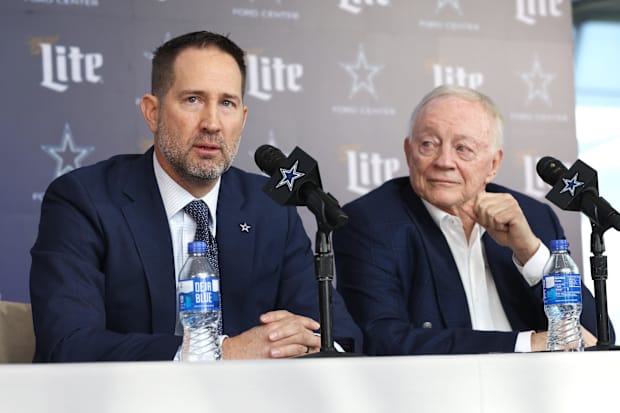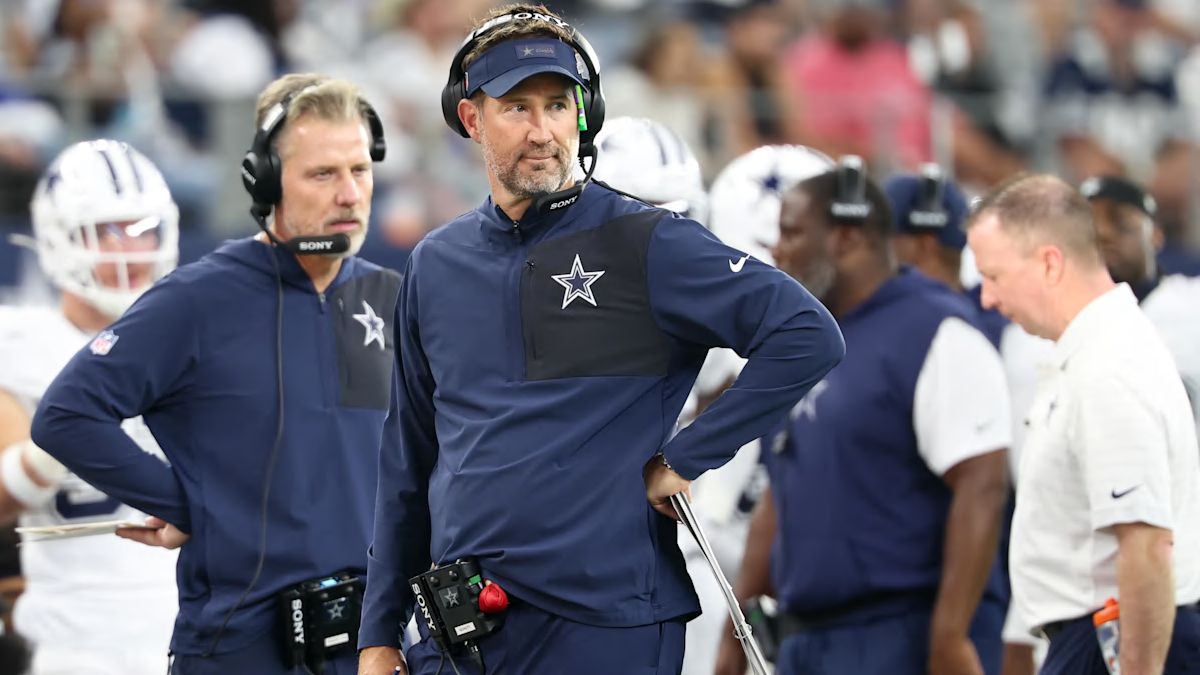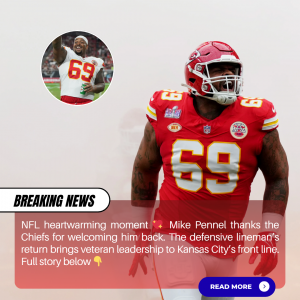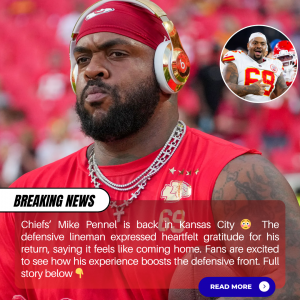Dallas Cowboys Fans Frustrated as Jerry Jones Prioritizes Business Over Football: Dak Prescott and Brian Schottenheimer Respond
DALLAS — Dallas Cowboys fans have reached a boiling point with team owner Jerry Jones, and the situation escalated after Jones made yet another eyebrow-raising comment. Speaking with Benoît Morenne of The Wall Street Journal, Jones appeared to prioritize a $100 billion natural gas venture over the team’s struggling defense.
“There’s $100 billion present value with (natural) gas out there. That’s why I’m talking to you on the telephone rather than trying to fix our defense with the Dallas Cowboys,” Jones said.
The remark set off an immediate firestorm on social media, with fans expressing disbelief and frustration. Cowboys Nation, already restless with a disappointing 3-4-1 record and a defense near the bottom of the league, was incensed. Many viewed the comment as the latest example of Jones prioritizing personal business ventures over the immediate needs of the team.
Dak Prescott Addresses Fan Frustration
Star quarterback Dak Prescott was quick to address the backlash, showing a mix of empathy toward fans and a steady defense of his owner’s character. Prescott acknowledged the validity of fan frustration, recognizing that supporters live and breathe the Cowboys and naturally expect every member of the organization to be fully committed to winning.
“Being a fan and you just hear that or read that, yeah, of course,” Prescott said. “Especially, right, as many fans are and do — thankful that they do — live and breathe by this team… So yeah, that can definitely be frustrating.”
Prescott then offered context for Jones’ remarks, suggesting they may have been taken out of context while emphasizing the owner’s long-standing identity as a businessman who seizes opportunities.
“The guy has never really lied about who he is or what he’s trying to do,” Prescott explained. “Maybe in those five minutes is what he was alluding to, and having a chance at a $100 billion opportunity I think you might take five minutes as well to answer a call. So, hopefully that’s what he means, right?”
By doing this, Prescott struck a balance: validating fan sentiment while protecting the owner and maintaining focus on what the team can control. His comments reflect the dual role a quarterback must play—leading both on the field and in public perception management.
Brian Schottenheimer’s Controversial Take

Adding fuel to the fire, Cowboys head coach Brian Schottenheimer attempted to defend Jones in a press conference, claiming that the owner’s involvement was similar to other general managers in the league.
“We sit down every Monday (90 minutes to 2 hours) and every Friday (45 minutes to an hour), myself, the coordinators, Jerry, Stephen, Jerry Jr., and we have such lengthy conversations. Jerry, Stephen and I talk almost every day by phone. At the end of the day, I can promise you one thing, no one wants to win more than Jerry Jones. And it’s our job to go out there and do that. That’s what we’re focused on,” Schottenheimer said via Jon Machota of The Athletic.
While the comments were well-intentioned, many fans and analysts found them tone-deaf and out of touch. Claiming that working with Jones is “similar to other GMs” ignores the reality that Jones is far more involved in media, public relations, and external business ventures than any other owner-GM combination in the league. His willingness to appear in interviews, use the media to influence narratives, and remain publicly critical of players during contract negotiations sets him apart from every other team executive.
Schottenheimer’s assertion that no one wants to win more than Jones also struck many as disingenuous. Fans point to years of reluctance to spend aggressively in free agency, conservative contract negotiations, and a tendency to prioritize personal business ventures as counter-evidence. While Jones undoubtedly loves the Cowboys, his methods and attention have not always aligned with the team’s immediate competitive needs.
Why Fans Are Furious
The fan backlash is rooted in both optics and performance realities. Dallas Cowboys supporters are some of the most passionate in the NFL, and the timing of Jones’s comment could not have been worse. The team’s defense has struggled to contain opposing offenses, and the trade deadline looms as a pivotal opportunity to improve the roster.
Jones’s focus on a $100 billion natural gas opportunity—while technically a rational business decision—was perceived as symbolically dismissive of the team’s struggles. Social media reactions reflected the fanbase’s frustration:
-
“Our defense is a disaster, and he’s worried about natural gas?”
-
“Jerry Jones’ priorities are insane. Dak, what’s going on here?”
-
“This is why we can’t get over the hump. Ownership isn’t focused.”
Fans were quick to contrast Jones’s approach with that of other team owners or general managers who have historically prioritized immediate team needs during critical stretches of a season. In essence, it’s not just the statement itself but what it represents about organizational priorities.
The Leadership Challenge for Dak Prescott
For Prescott, navigating this controversy requires exceptional leadership. As the quarterback, he must manage public perception, maintain locker room morale, and focus on performance under pressure. Prescott’s ability to validate fan frustration while contextualizing Jones’s actions is a textbook example of how a player can mediate between ownership and the public.
Prescott also emphasized player-controlled factors as the focal point, reminding fans and teammates alike that the team’s destiny is determined on the field:
“For us as players, we can control what we can control. That doesn’t pertain to us right now.”
By redirecting attention to what the team can actually influence—execution, preparation, and on-field performance—Prescott ensures that external noise does not derail the locker room or distract from winning football games.
Media and Analyst Reactions
Sports analysts were quick to weigh in on the incident, offering a spectrum of opinions:
-
Critical Voices: Some pundits criticized Jones for allowing business ventures to overshadow football priorities.
-
Moderate Voices: Others echoed Prescott’s sentiment that Jones’s comment was likely taken out of context and that his long-term commitment to winning remains intact.
-
Fan Advocates: Media also highlighted the disconnect between Schottenheimer’s defense of Jones and the fan perception of organizational priorities.
ESPN analyst Jeremy Fowler noted, “Dak’s comments show he’s not just leading on the field. He’s leading for the fans and for the locker room, managing optics with intelligence and integrity—a rare skill in professional sports.”
Contextualizing Jerry Jones’ Leadership
Jerry Jones has been one of the most successful and visible owners in NFL history. Under his stewardship, the Cowboys have remained a global brand powerhouse, and he has overseen both Super Bowl victories and playoff runs. Yet his style—highly public, highly involved, and often unconventional—sets him apart from most executives.
-
Media Involvement: Jones frequently engages with reporters, shaping narratives in real time.
-
Business Ventures: His attention extends beyond football, including ventures such as real estate, energy, and now natural gas.
-
Player Management: He is known to be hands-on with contracts, trades, and coaching decisions, often blurring lines between ownership and operations.
While this approach has produced success in branding and some on-field results, it also exposes the organization to public scrutiny and fan frustration, particularly when the team struggles in a competitive season.
Social Media and Fan Commentary
Fans were vocal across Twitter, X, and fan forums, highlighting both outrage and confusion:
-
“$100 billion? Our defense is a dumpster fire. Wake up, Jerry!”
-
“Schottenheimer defending that comment is ridiculous. We’ve seen the tape. He’s distracted.”
-
“Dak Prescott is the only adult in this situation. Love how he handled it.”
-
“This is why free agency is always a mess in Dallas. Ownership isn’t laser-focused on winning games.”
The incident underscores the delicate balance Cowboys leadership must maintain between public perception, fan loyalty, and organizational performance.
Looking Ahead: Trade Deadline Implications
The Cowboys’ defense remains a pressing concern. With the NFL trade deadline approaching, speculation about moves to shore up the roster has intensified. Some fans worry that if ownership’s attention is split, opportunities to make key trades may be missed, further frustrating an already impatient fanbase.
Prescott and the coaching staff must now keep the locker room motivated, focusing on execution while external noise swirls. Leadership in Dallas is as much about handling off-field distractions as it is about calling plays or winning games, and Prescott’s measured response shows he is prepared for both.
Conclusion: Leadership Amid Controversy
The Jerry Jones $100 billion natural gas comment is more than a misstep; it is a reminder of the unique challenges inherent in the Dallas Cowboys organization. Fans expect intense focus on winning, media scrutiny is relentless, and leadership requires a deft touch.
Dak Prescott’s response illustrates empathy, diplomacy, and focus, validating fan frustration while framing Jones’s actions in a broader context and steering attention back to controllable factors on the field. Meanwhile, Brian Schottenheimer’s defense, though well-intentioned, highlighted the difficulty coaches face in publicly supporting an owner under scrutiny.
In the end, this episode demonstrates the complex dynamics at play in NFL leadership. Prescott’s handling of the situation may well serve as a template for future player-leaders navigating organizational controversies. As the Cowboys continue their 2025 campaign, both Prescott and the team’s management will be under the microscope, and fans will be watching closely to see if actions finally match words.
“For us as players, we can control what we can control. That doesn’t pertain to us right now.” — Dak Prescott
These words capture the essence of leadership in Dallas: focus, clarity, and a steady hand in the midst of external distractions. Whether the Cowboys can translate leadership into wins remains to be seen, but Prescott’s approach gives the team its best chance to navigate turbulent waters.






